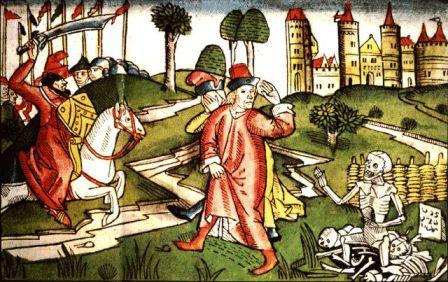PeaceByJesus
Unworthy servant for the Worthy Lord + Savior
- Feb 20, 2013
- 2,775
- 2,095
- Country
- United States
- Faith
- Christian
- Marital Status
- Single
- Politics
- US-Others
Hello, I have three questions:Hello! I have three questions:
(1) Does "Reformed" Protestantism (Calvinism, Presbyterians, Evangelicals, etc.) have a real, direct basis in early Christian traditions and writings to claim that the Communion bread is "only" a symbol and to reject the Lutheran Protestant and Catholic beliefs in Jesus' real presence in the food (consubstantiation and transubstantiation, respectively)?
(2) Does Protestantism have a real basis in early Christianity to reject the special respect and claimed miraculous properties of holy relics?
(For Question #2, please see post #94 http://www.christianforums.com/thre...-of-christianity.7929431/page-5#post-69195600)
(3) Does this Reformed Protestant approach to theology lead out of and away from Biblical Christianity? (See Message #185 below for Q.3: http://www.christianforums.com/thre...of-christianity.7929431/page-10#post-69202770)
In the poll above, disregard the words "Age of Enlightenment". Calvin's rationalistic approach could only be a precursor to the Age of Enlightenment, whose founders included those who came from Calvinism like Pierre Baley and Rousseau.
I propose that we spend a little bit on each question and then as a group move to the next question one by one. We are currently on Question 3.
Does Catholicism have a real direct basis in wholly inspired Scripture for making the various uninspired post-apostolic writings of men determinitive of truth, as determined by the historical magisterium which is infallible?
Does the claim of being the historical magisterium and stewards of Scripture mean that what she determines are relics having miraculous properties and worthy of special reverence must be true (but the Bible is a dead book unless she explains it)?
Does the claim of ensured perpetual magisterial infallibility, under which RCs find assurance that such things as the Assumption is fact, lead out of and away from Biblical Christianity?
These are needful questions in the light of the fact that the argument for literalistic understanding of the Lord's supper much rests upon the understanding of so-called "church fathers" (they were not) as determined by the RC or EO church.
That most of the early CF's who writings we have (it is estimated we only have a fraction of all that ECFs wrote freely available to us) supported the "Real Presence" (though apparently that originally was an Anglican term) seems beyond dispute, yet they also variously held other false beliefs, and RCs and EOs both enlist them in their disputes with each other.
As regards relics, that God can sovereignly bless contact with certain inanimate objects is Scriptural, but (apart from the ark of the covenant, which does not represent Mary) not by formally making such to be objects of veneration and as necessarily permanently conveying grace, which is what Israel did with the bronze serpent, but God can sovereignly choose to bless something like contact with the bones of Elijah in certain instances, which attests to the virtue of those to whom they belonged, or represented.
Simply because brought unto the sick handkerchiefs or aprons or Paul, and the diseases departed from them, and the evil spirits went out of them, (Acts 19:12) does not mean they permanently would be used of God as such, and become objects of veneration.
And Moses made a serpent of brass, and put it upon a pole, and it came to pass, that if a serpent had bitten any man, when he beheld the serpent of brass, he lived. (Numbers 21:9)
He removed the high places, and brake the images, and cut down the groves, and brake in pieces the brasen serpent that Moses had made: for unto those days the children of Israel did burn incense to it: and he called it Nehushtan. (2 Kings 18:4)
Last edited:
Upvote
0

